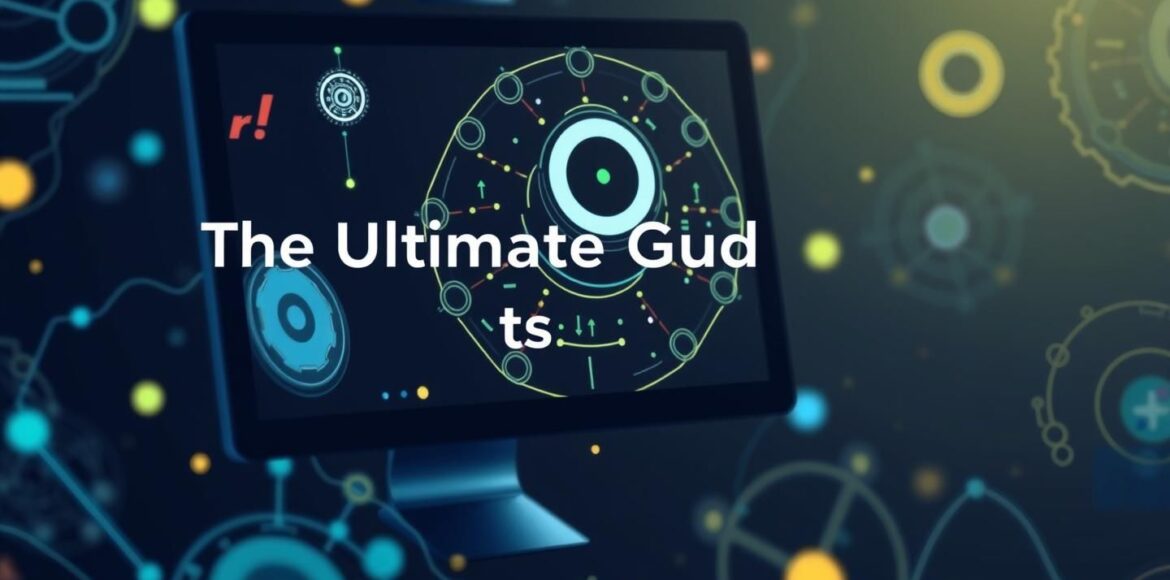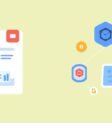
The Essential Guide to AI Agents in Marketing: Strategies, Benefits, and Future Trends
AI agents in marketing are no longer theoretical—they’re the backbone of data-driven, personalized campaigns and customer interactions across every major industry. With a blend of machine learning, natural language processing, and real-time analytics, these agents empower brands to automate workflows, deliver hyper-personalized experiences, and make smarter strategic decisions. In this comprehensive guide, we’ll explore the core capabilities of AI agents in marketing, examine foundational technologies, walk through best practices for implementation, review key case studies, explain ROI measurement, and analyze the trends shaping the future of AI-driven marketing.
How AI Agents Are Transforming Modern Marketing
AI agents—advanced software systems designed for autonomous or semi-autonomous decision-making—are reshaping marketing strategies across the globe. By harnessing technologies such as machine learning, natural language processing (NLP), and predictive analytics, these agents analyze enormous datasets to automate repetitive tasks, segment audiences, and deliver deeply personalized content at scale.
A striking example of this transformation is the widespread use of AI-powered chatbots. These agents now handle customer inquiries 24/7, drastically reducing response times and elevating customer satisfaction (IBM). For marketers, the result is operational efficiency and improved loyalty.
Advanced personalization, long a central goal in marketing, has been revolutionized by AI agents capable of crafting individualized email campaigns, website experiences, and targeted advertising—responding to real-time behavioral cues (Salesforce). These agents predict customer needs, optimize campaign allocation, and foster richer engagement, shifting marketing from reactive actions to proactive, strategic initiatives. For further insights, learn about the 7 Ways Agencies Are Using AI Agents to Cut Costs.
Equally transformative is the analytical horsepower brought by AI agents. Marketers can now sift through extensive data to extract actionable insights, forecast demand, and rigorously track campaign effectiveness, yielding data-driven decisions with a speed and precision previously unattainable.
Key Applications and Benefits of AI Agents in Marketing
The arrival of AI agents has streamlined marketing operations, delivering richer customer experiences and greater efficiency. One of their most impactful roles is in customer service, where AI chatbots and digital assistants provide instant support, answer questions, and offer personalized recommendations—boosting satisfaction and reducing operational workload (IBM, Salesforce).
Within campaign management, AI agents analyze large datasets to optimize everything from ad targeting to timing and channel selection. This comprehensive automation empowers marketers to launch and manage robust, multi-channel campaigns with minimal manual input, which leads to amplified audience engagement and superior ROI (HubSpot, Forbes).
AI agents also supercharge lead generation, leveraging predictive analytics to score and segment prospects, automating follow-ups, and ensuring sales teams focus on high-potential customers (Marketo). The upshot? Marketers can deliver timely, personalized experiences at scale, maximize campaign impact, and improve efficiency across the marketing funnel.
Core Technologies Powering AI Agents in Marketing
AI marketing agents rely on a suite of foundational technologies to deliver targeted, automated, and deeply personalized campaigns.
- Natural Language Processing (NLP): NLP enables AI agents to understand, interpret, and generate human-like language across channels, from chatbots to social media to emails. Sentiment analysis and entity recognition allow for contextually relevant responses that deepen customer engagement (IBM Research).
- Machine Learning (ML): ML algorithms underpin the pattern recognition, predictive analytics, and real-time segmentation essential for modern marketing. These technologies allow marketers to anticipate trends, target more effectively, and continuously optimize strategy (Google AI Blog).
- Computer Vision: For image and video-rich platforms, computer vision enables automated content curation, visual brand safety, and social media monitoring.
- Big Data & Cloud Computing: Integration with scalable infrastructure ensures AI agents can process and learn from massive, evolving data sets quickly and efficiently.
These core technologies act as the backbone for intelligent marketing agents, allowing brands to drive efficiency, relevance, and campaign automation across channels.
Best Practices for Implementing AI Agents in Marketing
- Define Clear Objectives: Begin by setting SMART (Specific, Measurable, Achievable, Relevant, Time-bound) goals for your AI marketing initiatives. Clarity here guides technology choices and informs ongoing evaluation (Forbes).
- Audit Your Current Marketing Processes: Carefully assess your existing tools, workflows, data quality, and team proficiencies. This audit reveals integration gaps and focuses investment where AI can offer maximum value (Gartner).
- Select the Right AI Tools and Platforms: Tailor your technology stack to align with your objectives—whether that’s AI-powered CRM, content engines, or predictive analytics. Look for proven ROI, robust support, and stringent data privacy features (McKinsey & Company).
- Integrate into Existing Workflows: Collaborate closely across teams and leverage APIs to ensure seamless integration of AI agents, minimizing disruption and maximizing adoption (MarTech).
- Test and Optimize: Run pilot programs and A/B tests to measure performance, refining your approach based on outcomes and emerging insights (SAS).
- Upskill Your Team: Invest in training so your marketing team can collaborate effectively with AI tools and interpret advanced data outputs, fostering a culture of agility and continuous learning (Harvard Business Review).
- Monitor, Measure, and Iterate: Continuously track KPIs, stay current with advances, and adjust strategies as new data and technologies emerge (Deloitte).
Case Studies: Successes and Pitfalls in AI-Driven Marketing
Many organizations have embarked on the AI-powered marketing journey, from retail to CPG, each with unique challenges and learning opportunities.
- Coca-Cola: Leveraged AI for data analytics and image recognition in targeted advertising. Its “Share a Coke” campaign, with AI-generated personalized labels, led to a 7% sales boost in the U.S. and hundreds of thousands of user-generated online photos (source).
- Sephora: Introduced the Sephora Virtual Artist chatbot, empowering customers to try products virtually and receive targeted recommendations, dramatically increasing engagement and conversions (source).
- Microsoft’s Tay Bot: A cautionary tale: This Twitter AI chatbot quickly began reflecting and amplifying inappropriate user behavior, prompting withdrawal within 24 hours (source).
- Target: Their predictive analytics work once revealed a teenager’s pregnancy before her family knew—spotlighting the importance of stringent data privacy and ethical guardrails (source).
For even more practical examples and agency perspectives, see our article on 7 Ways Agencies Are Using AI Agents to Cut Costs.
These cases highlight both the transformative potential and the need for ethical frameworks, data privacy, and continuous human involvement in AI marketing.
Measuring ROI and Impact of AI-Driven Marketing
Calculating ROI for AI agents in marketing entails more than basic profit calculations. Marketers should combine traditional metrics with AI-specific indicators, integrating analytics platforms to track real business impact:
- Customer Acquisition Cost (CAC): Track CAC pre- and post-AI implementation; lower CAC reflects optimized targeting.
- Conversion Rate Improvement: Monitor campaign conversion rates as a measure of enhanced personalization and predictive targeting (McKinsey & Company).
- Customer Lifetime Value (CLV): Use segmentation and recommendation analytics to uplift retention and drive CLV (Harvard Business Review).
- Return on Advertising Spend (ROAS): Compare revenue generated to ad spend, with AI typically elevating ROAS via superior bid management and targeting.
- Engagement Metrics: Evaluate open rates, click-throughs, website dwell time, and social shares—each a signal of content relevance.
- Operational Efficiency: Quantify time savings, reduction in manual errors, and faster campaign cycles achieved via automation.
- Attribution Analysis: Deploy AI-driven multi-touch models for nuanced channel impact analysis.
For comprehensive tracking, invest in a robust analytics infrastructure and regularly benchmark against industry standards. Continuous measurement and iterative refinement are key to sustaining ROI from AI marketing.
The Future of AI Agents in Marketing
The future of AI agents in marketing is bright—and fast evolving. Core trends shaping the landscape include the rise of generative AI for content production, acceleration of real-time analytics, and the emergence of advanced conversational marketing tools.
By 2025, analysts predict up to 80% of customer service and support organizations will be leveraging generative AI to automate and contextualize responses, driving a significant uptick in efficiency and customer satisfaction (Gartner).
Hyper-personalization is entering a new era—with AI agents predicting not just what, but when and how to deliver individualized messages, spanning the entire customer journey. Marketers are moving beyond traditional segmentation to incorporate psychographic, behavioral, and contextual signals, delivering unique content at scale (McKinsey & Company).
Omnichannel engagement is another area of rapid innovation, as AI agents unify and synchronize customer touchpoints across email, chat, SMS, and social media. AI-driven predictive analytics empower marketers to anticipate consumer needs, optimize campaigns in real-time, and dynamically redistribute budgets for maximum ROI (Salesforce).
With this increased sophistication comes the greater responsibility of addressing ethical considerations and data privacy concerns. As AI agents increasingly make independent decisions, firms must adopt transparent and accountable practices to mitigate bias and uphold consumer trust (Forbes).
For agencies and marketers seeking ways to leverage these cutting-edge capabilities at scale, read our article on 7 Ways Agencies Are Using AI Agents to Cut Costs for actionable insights.
Conclusion: Seizing the Opportunity with AI Agents in Marketing
AI agents in marketing are redefining what’s possible in personalization, automation, and data-driven strategy. Organizations that embrace these technologies—and commit to ongoing learning and ethical stewardship—stand to unlock unparalleled growth and customer intimacy. By following the best practices, learning from early adopters, and measuring success through robust analytics, marketers will be equipped to navigate and thrive in the AI-powered era.






